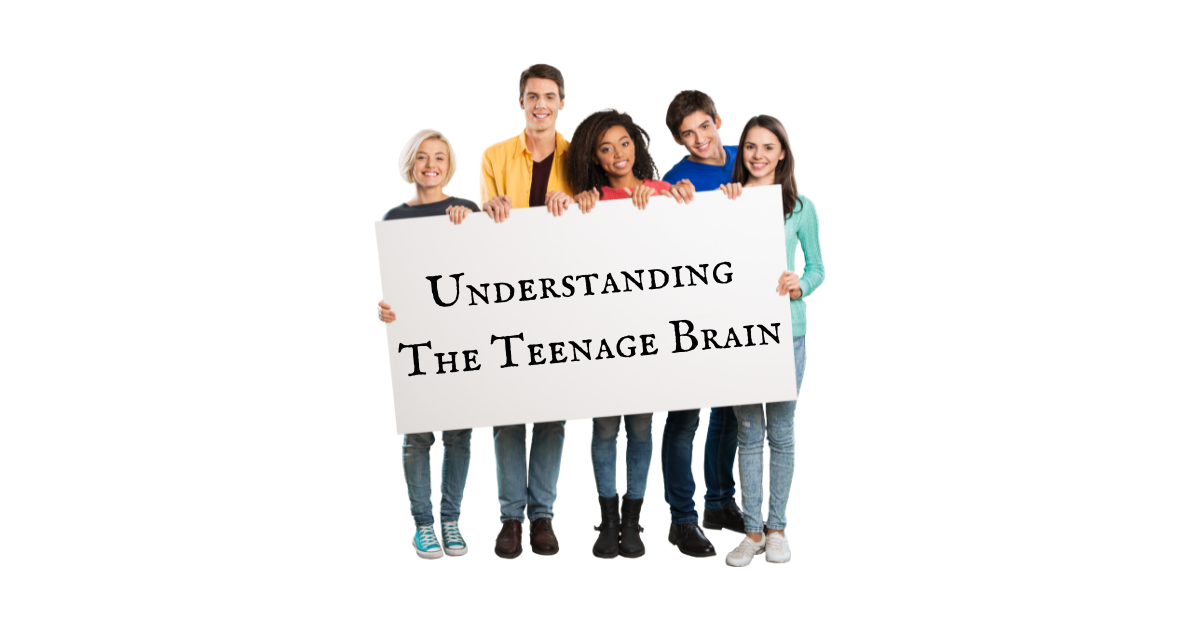The Teenage Brain
It won’t be a surprise to anyone who knows one, but teens are different. And that is all down to their teenage brain!
The brain is at its largest size at around age 11 for a male and 14 for a female. It is at its most powerful and yet its most vulnerable stage of development.
Why Teenagers Sleep More
The teenager learns quickly because of ‘neuroplasticity’ – the ability of the brain to develop new neural pathways. Some pathways are used a lot and become stronger, others are used less and are ‘pruned’ away. This rapid reconfiguration happens during sleep and uses a lot of energy, which is why teenagers tend to need to sleep more.
Why Teenagers Are Driven By Emotions
While learning is at its peak efficiency, the teenage brain is inefficient in attention, self-discipline, task completion and control of emotions. This is because the brain develops ‘back to front’. While adults think from the Pre-frontal cortex (PFC), the rational decision-making part towards the front of the brain, the teenager processes information with the emotional part of the brain, the amygdala which is located deeper in the brain.
The PFC isn’t fully developed until around 25. So, for the teenager, it is more about feeling than thinking – their world is driven by emotion, not reason. And this makes then more vulnerable to stress. Learn more about mental wellbeing for children and how you can support them here.
If you are hear reading this because you have a teenager facing exams and want to support them more I have a blog post on how to help them to study here.
Why Teenagers Take More Risks and Rebel
While the teenager can logically assess whether something is dangerous or not, they don’t seem to learn from their mistakes. This is because they get a sense of reward from impulsivity and reckless behaviour due to the production of dopamine. This feels good, so they go in search of further gratification. This is without the fully developed PFC to provide cognitive control and inhibition of the risky behaviour.
As well as exhibiting risky behaviour, teenagers may also rebel against authority. For many species in the natural world, adolescence is when the young separate from the comfort and safety of the family and seek independence, so this is a normal response.
How You Can Help Your Teenager
Teenagers do, have the ability to moderate their behaviour. And you can help them:
- Communicate with your teen – emphasise the positive things in their life, encourage new activities
- Educate yourself about their world so you can better understand them and to be aware of risks
- Provide a calm and organised environment for yourself, as an example
- Give your teen clear instructions, one or two at a time – if possible, write them down
- Provide a calendar to help them organise their time
- Set limits – with everything. They may not go with them, but they are important
- When dealing with emotional outbursts, try to stay calm
- Don’t jump in with advice, check whether advice is sought, or if they just want you to listen
- Don’t be shocked if they do something stupid and say they don’t know why – they really don’t
- Try to be tolerant of misadventures, but talk about their mistakes and discuss consequences to help the links develop
- Remind them that they are resilient and competent
- Reinforce that you are there for them
Can Solution-Focused Hypnotherapy Help Teenagers?
Yes, absolutely! Because of the forward thinking, positive nature of Solution Focused (SF) work, it is highly suitable for working with children and young people.
I see children for many different presentations of anxiety such as issues with sleeping, food and eating, nail biting and more. Children will often demonstrate their confusion or distress by becoming angry or sad, or with challenging behaviour. Stress can result from life changes such as moving home, moving school, bullying, bereavement and family breakdown.
With older children and teenagers, as well as the above, there may be issues with self-confidence, self-esteem, exam stress or uncertainty around sexuality. Any of these may lead to more serious issues such as alcohol or drug misuse, self-harming and even the risk of suicide.
As these difficulties are becoming more common in our society, I have become qualified as a Youth Mental Health First Aider to gain a greater understanding. I may carry out SF work in conjunction with other professionals providing a team approach in helping the young person to overcome their difficulties. Contact me for more information.
I also some resources to help you support a child or young adult which includes book suggestions and links to organisations such as Kooth.

